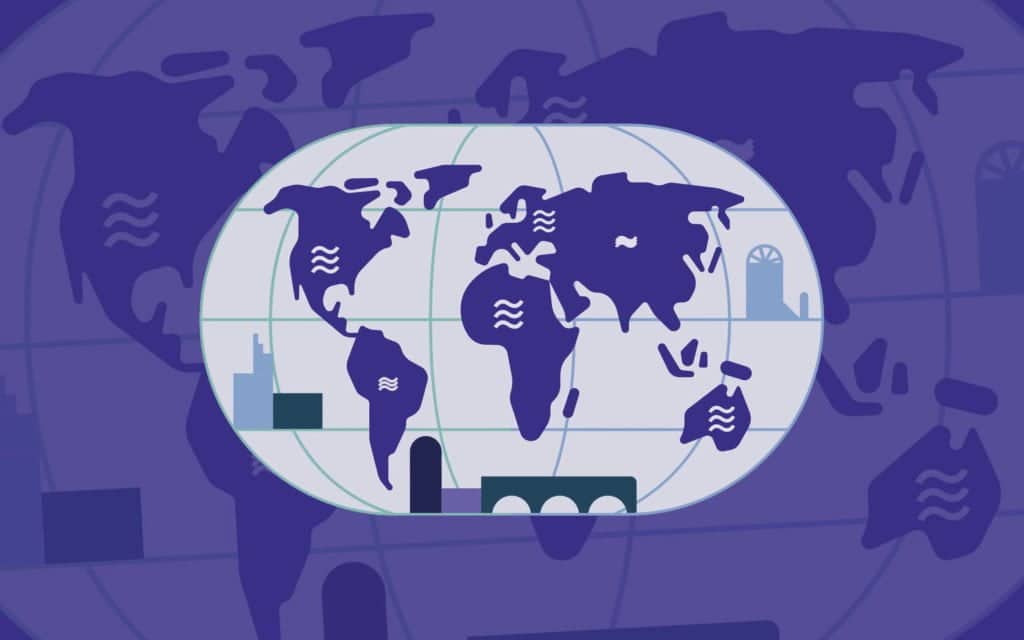Facebook has announced the birth of Libra, a cryptocurrency that adds more weight to the ambitions to dominate communication and global business.
Backed by an impressive battery of giants (between VISA, Spotify, Spotify, eBay, PayPal and Uber) and from a ready-made 2 billion user base, the Menlo Park company will bring states and central banks to cooperate with the reinvention of the global financial system.
After the legal reverses of the Cambridge Analytica case, Mark Zuckerberg is trying to give his company more political power on a global scale. His declaration of wanting to transform Facebook into a nation populated by users, with its economy and its Head of State (he) is symptomatic.
A "nation" that today is still facing major privacy and public problems, however. We must ask ourselves a bit rhetorically whether this effort to redraw or superimpose new borders on the world will serve the interests of humanity or of a financial and technological elite.
There is a need for ethical guidance and time to foresee the potential repercussions of rapid technological, climate and political changes. I think this cryptocurrency project should be regulated or suspended in its effects until it is shown to be safe for all players in the global community.
What Libra points to, and why it is NOT a true cryptocurrency
From the broad participation of financiers, one thing is clear: social platforms and large companies are interested in a native currency on the internet. Social media is interested because it broadens users and power. Companies are interested because it raises money from a vast pool of users otherwise far from banking and financial mechanisms.
A basin with a potential of trillion euros.
Libra is a currency that effectively starts as an oligopolistic, centralized, private club: really too little to talk about "blockchain". It is only in name: in fact it is a mechanism for exercising gigantic seigniorage over billions of people.
Is it a race that will meet resistance?
The technical details of Facebook's plan emerge gradually, and it would be a mistake to think that Libra's goal is to compete with Bitcoin or its other "colleagues": Libra wants to replace the existing global financial system, and will in any case be the ram that opens up to its replacement.
If on the one hand it will run with the wind in favor of market power and the public's favor over cryptocurrencies. It may not be enough for Facebook to have made a cartel with other financial realities to have more weight.
A change is needed, but…
There is certainly a need for a way to circulate money more easily, quickly, cheaply, and give access to financial services to a huge portion of people without even a bank account. This need justifies the enormous potential of Libra, but it should be met in more equitable ways and in everyone's interest.
For now Libra is thought of as a cryptocurrency linked to some national currencies. What will stop it from being a real sovereign currency, with Facebook in the guise of a "shadow central bank" capable of competing with the central banks of (other?) states?

A whole new system of rules will be needed to avoid the risk that the Libra cryptocurrency will become a single world currency in the hands of private individuals. And it will serve rather quickly. The launch scheduled for next year does not allow enough time for “soft” countermeasures.
I am certainly not calling for an Orwellian control of world transactions
Anonymity or free economic choice are important civil rights that must also be protected. An entire financial system born within nations, which (fortunately) still has some regulatory mechanism, cannot be totally handed over to individuals by bartering it with greater ease of circulating money.
It is a concern that must be taken seriously. Facebook tends to launch products and services in a disruptive way, only worrying later (and only when called back) the consequences on society and democracy. In short? He has already shown in the past that he has little regard for public protection.
This is why consumers and legislators must evaluate very carefully (and already some forecast proved to be dramatically incorrect). Is Libra a real innovation or a way to get around restrictions on financial practices and products that are potentially harmful to society and democracy?
If the word democracy still applies
Facebook's entry into the financial industry is a threat to democracies and citizens of the world. It is exactly as disinformation and data manipulation are, phenomena amplified by the entry of the social network onto the global stage.
It may be difficult for world leaders to understand that this is an emergency. There is a risk that this time too the potential damage will be underestimated or ignored.
Facebook has the ability to create a currency that allows more freedom and anonymity through the blockchain. Or a currency that increases transaction control and tracking. A currency that helps a better distribution of wealth, or that concentrates it even more in the hands of a few. What will you choose?
A cryptocurrency. Or the dawn of the Empire
Zuckerberg no longer has a simple company.
The Facebook CEO is really building a nation with a people, a currency and a territory distributed all over the planet. A nation with a private state. The name used for cryptocurrency is also thought-provoking: Libra was the unit of measurement from which money was derived in the ancient Roman Empire. From Charlemagne onwards he identified the actual currency.
There is just one underlying problem in this nation. It is a nation controlled by a few, with mechanisms more similar to a dictatorship than a democracy. A dictatorship already financially stronger than many countries.
In a picture already made very confusing by global financial crises always around the corner and information perpetually in crisis of credibility, society must make an effort to evaluate.
He must carefully and intelligently evaluate the potentially devastating consequences of operations like this.


